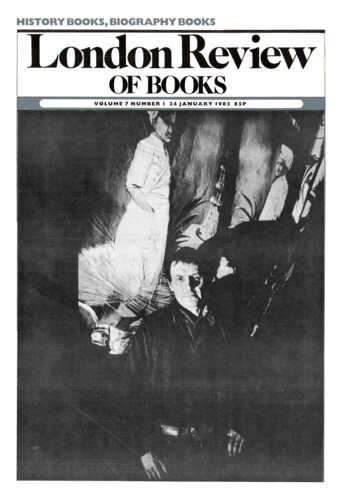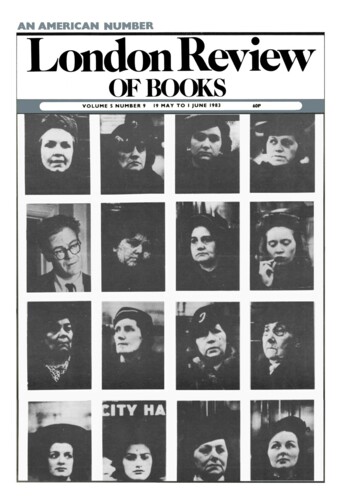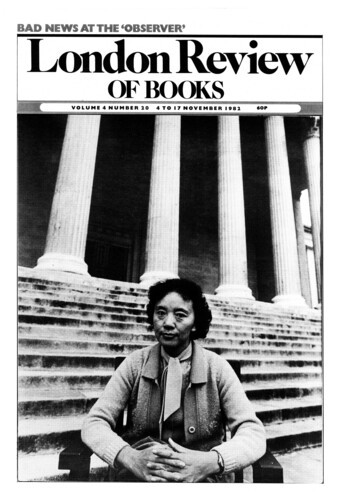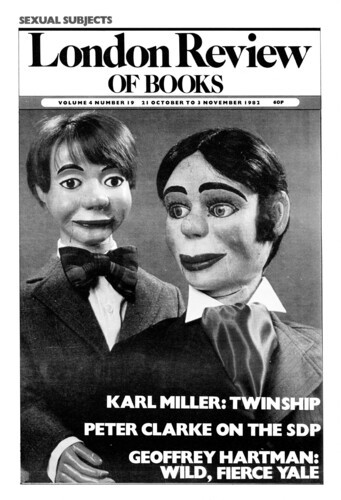Diary: On Doubles
Karl Miller, 2 May 1985
It is possible that C.J. Koch’s novel The Doubleman, which has just been published in London, will be reviewed as a pathfinding contribution to literary psychology. A clever and diverting book it certainly is – by the Tasmanian author of The Year of Living Dangerously, who now lives in Sydney – and it applies to established themes a new ambience and a new geography. It takes the double into a delirious realm of folk music, radio, television and the charts. The inhabitants of a land of Faery cut their discs and their capers dressed in Medieval costume; the Mersey sound is emulated by Sydney’s very own elf sound. But this is not a novel novel. It is a Gothic novel, which abides by a tradition of which the writer is learnedly aware, and which can lead him to telegraph his punches. Some of it reads like Bulwer-Lytton’s A Strange Story, of a long time before, which ends up, as it happens, in Australia, with a kind of atomic-diabolic explosion.’





